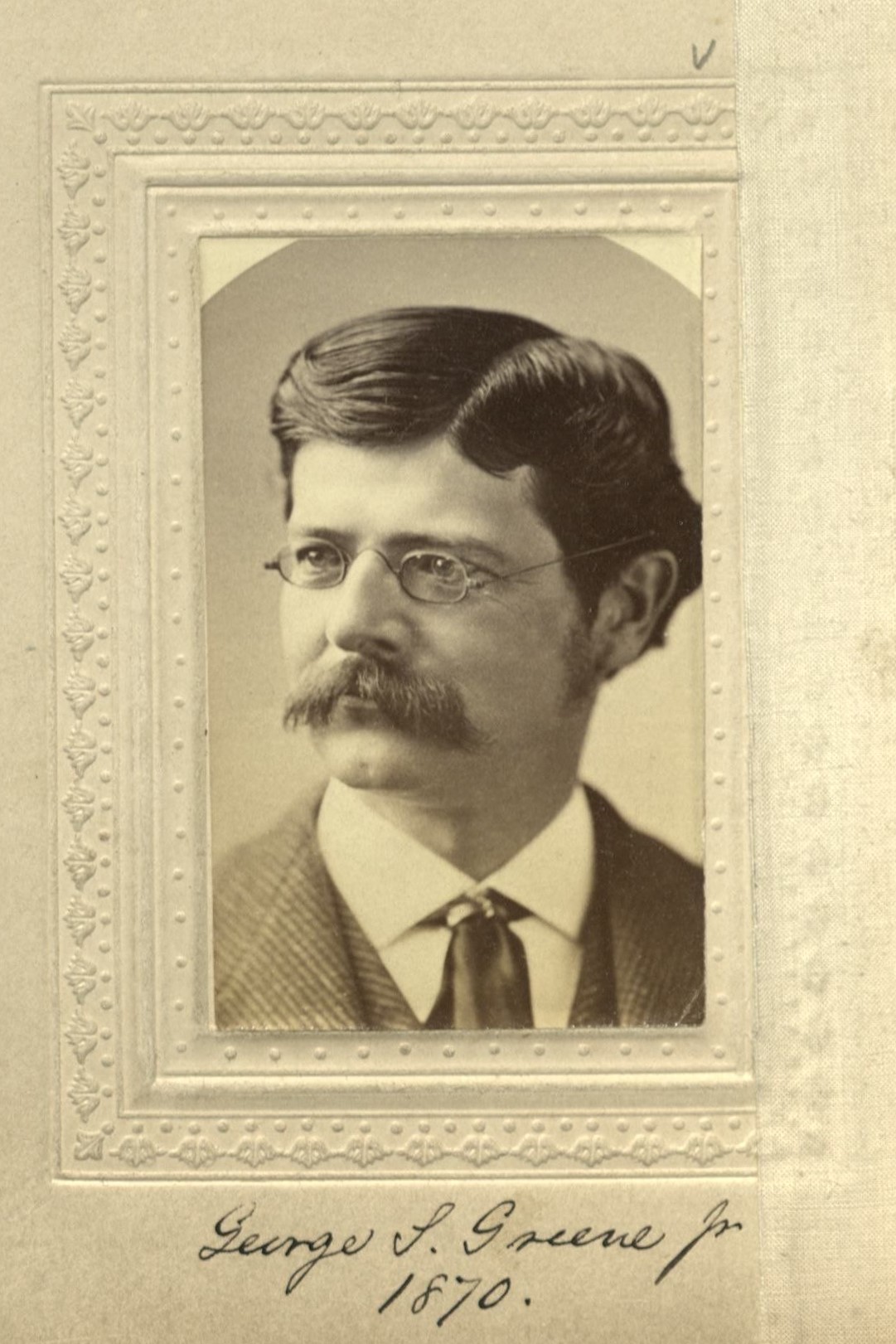Civil Engineer
Centurion, 1870–1922
Born 26 November 1837 in Lexington, Kentucky
Died 23 December 1922 in South Orange, New Jersey
Proposed by Daniel Huntington and George W. Cullum
Elected 4 June 1870 at age thirty-two
Archivist’s Note: Son of George S. Greene; brother of Francis Vinton Greene; nephew of Alexander Hamilton Vinton and Francis Vinton; cousin of Alexander H. Vinton and Francis Laurens Vinton; father of Carleton Greene; uncle of George de B. Greene and Samuel Dana Greene
Proposer of:
Seconder of:
Supporter of:
Century Memorial
Most members of the Club will recall distinctly the occasion when, as novices in the Century, they first slipped into the chair allotted them at the foot of the dining table and glanced up respectfully to where the Olympians sat at the head of it. If we were very young members then—say in the middle forties—we can still remember how that group of seasoned Centurions, of which George Sears Greene was invariably the central figure, seemed the incarnation of Club fellowship. The mysterious dishes which, after receiving special admonition, Elijah or Henry used to set before them; the intensity of interest, sometimes the grave divergence of opinion, with which the ingredients were discussed; the jovial good humor with which, in the fashion of those pre-Volstead days, emphatic judgment would be pronounced on topics political or literary or social—it is all a picture belonging to what we must now, perhaps, describe as the old Century.
Without Greene, the Club of those days would not have been quite what it was. Twice chairman of the House Committee and taking his turn on the Admissions Committee, he did not spare himself in the Club’s service. But it is in the Club’s social intercourse that recollection will picture him; perched in his own invariable chair at the north end of the big pool table with Cooper supporting him on the South, setting forth at the table in the hall his positive and not complimentary opinion of the Democratic party and the Latin-American republics, always exchanging views with the mastery of easy conversation that can be gay without ever growing flippant, serious without ever growing tedious.
That, after all, is what makes club tradition of club personalities. Professionally an engineer of high eminence, no one recalls shop talk from Greene at the Century. Yet his career had been one of public importance. His twenty years as head of the New York City Dock Department were marked by some of the most essential innovations in that branch of the municipal service—an achievement all the more significant because, stretching from the early seventies to the middle nineties, his term of office gave New Yorkers the chance to see at least one department thoroughly, honestly and efficiently conducted, in a period when city administrators whose work was either thorough or honest or efficient were certain to incur suspicion and dislike of the ruling powers.
Alexander Dana Noyes
1923 Century Association Yearbook

